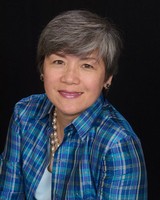Return to published story index
e-mail author (edward@ordman.net)
Author Info
This appeared in The Commercial Appeal, http://www.commercialappeal.com/, on May26, 2012, p. M1 continued to M3.
It is online as I write this at http://www.commercialappeal.com/news/2012/may/26/guest-commentary-journey-of-belief-came-full-for/
but is archived here in case they take it down there.
I drafted an article, Connie Binkowitz added a good deal, David Waters of the CA significantly edited it.
Guest Commentary: Journey of belief came full circle for Filipina
One advantage of Memphis in May is that we get to learn about
distant places we may know little about. If we pay attention, it
also gives us a chance to learn more about ourselves.
Earlier this month, I attended the Filipino Cultural Performance at the Orpheum. This year's Memphis in May International Festival is honoring the Philippines.
At the performance, I happened to sit next to a local lady of Philippine origins who introduced herself as Connie Binkowitz.
That doesn't sound like a Filipina name. I eventually learned that her full name, before marriage, was Maria Consolacion Matza Sabater.
Matza? That doesn't sound like a Filipina name, either. Matza, sometimes spelled "matzah," is the unleavened bread that Jews eat at Passover and the origin of communion wafers.
Connie, who was born in Polangui, Albay, in the Philippines, came to Memphis in 1983 to earn an MBA at then-Memphis State University. Smitten by the economic development planning bug, she transferred programs and graduated with a master's in city and regional planning in 1986.
In 1995, Connie married Charlie Binkowitz of Brooklyn, N.Y. Charlie was a member of Beth Sholom Synagogue. Connie began attending synagogue services and was introduced to various Jewish holidays.
In 1996, Connie experienced her first Passover Seder, and, for the first time, encountered the unleavened bread in a form that was nothing like she encountered growing up as a Roman Catholic in the Philippines.
Over and over during the Passover seder, she heard the word "Matza", "Matza", "Matza" -- and finally learned that Matza, her mother's maiden name, meant unleavened bread.
During this Passover experience, Connie also understood more fully the ritual of the Eucharist and its connection to the breaking of the matza as well as the hiding and eating of the afikoman, the last bit of matza in the meal. Connie sensed that her life was beginning to come full circle.
Connie's maternal grandfather, Joshua Matza, was a Syrian Jew who spoke several languages, including Spanish and English. He came to the Philippines with American soldiers shortly after the Spanish-American War.
He eventually settled in Polangui after marrying a local widow. He became a Catholic, and so did his children. One of his sons, Luis Matza, was Connie's grandfather.
A few years ago, Connie found a ceremonial plate for Passover with the word "MATZA" in large letters in the center. She shipped it to her mother in the Philippines, where it found pride of place in the family curio cabinet.
The plate gives Ludy Sabater opportunities to explain that her daughter married a Jew from Brooklyn and converted to Judaism. More important, the plate gives Mrs. Sabater a chance to share the story of her own grandfather, Joshua Matza, and her family roots in the Middle East.
Although Connie's parents were initially dismayed by her decision to change religious affiliations, they have come to appreciate their daughter's reasons for returning to the faith of her great-grandfather.
Their daughter's experience has underscored something they always knew: Life always comes full circle -- even if it has to wait patiently for three generations, because G-d has a twisted and circuitous sense of humor.
They are strong advocates for letting life lead everyone toward the religious and spiritual practice that brings meaning and joy to their lives.
Edward Ordman is an organizer of Memphis Inter-Religious Group. Connie Binkowitz, who contributed a great deal to this article, is project manager at Healthy Memphis Common Table.
